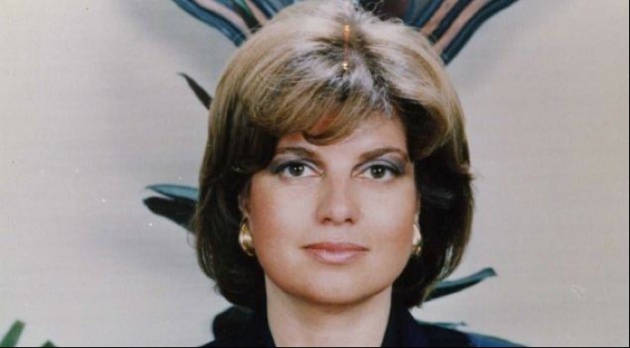1-Top women leader of world. My Leader Benazir Bhutto.

In 1976, she was elected as the President of Oxford Union which was an achievement personally for her and for her country, since she was the first Asian student to be elected to that esteemed position. Before joining the Oxford University, she had completed her primary education at Jennings Nursery School and Convent, and later got admission to the Harvard, one of USA's most prestigious institution. In 1977, having completed her studies, she returned to Pakistan to lead her people. Her modern education and exposure to the world, and her charisma and leadership qualities, turned the party into a formidable force, and soon she became one of the most vocal and strongest political voices within Pakistan and globally.
She made active efforts for strengthening national defence and launched the national missile technology programme. Thanks to efforts on the diplomatic front, the American government removed Pakistan from its blacklist. Pakistan made several agreements for power sector development with Hong Kong and France also agreed to develop a nuclear power generation facility in Pakistan to address future shortages. On 5th November 1996, the then President Farooq Laghari dissolved the National Assemblies on baseless allegations. From 1996 to 1999, Benazir Bhutto remained the opposition leader and in the year 1999 another dictator came to power, leading to her exile and the commencement of another long struggle for democracy. Her husband Asif Ali Zardari was imprisoned and victimised in the courts on false allegations for 8 long years. Shaheed Benazir Bhutto returned from exile on 18 October 2007 with hundreds and thousands of Pakistan People's Party workers and followers greeting her at the Karachi airport.
2-TANSU ÇILLER, Prime Minister of Turkey, 1993-1996

Tansu Çiller was the 30th Prime Minister of Turkey, and lead the conservative True Path Party (DYP). Her tenure as Prime Minister took place during intensified armed conflict between the Turkish Armed Forces and the Kurdish separatist PKK. As leader of the DYP, she went on to later serve as Deputy Prime Minister of Turkey and as Minister of Foreign Affairs. Born in Istanbul in 1946, Çiller graduated from the School of Economics at Robert College in Turkey and received her PhD from the University of Connecticut.
3. MEGAWATI SUKARNOPUTRI, President of Indonesia, 2001-2004

Megawati Sukarnoputri is the current leader of the Indonesian Democratic Party of Struggle (PDI-P), one of Indonesia’s largest political parties, and served as President from 2001 to 2004. She is also the daughter of the Indonesia’s first President, Sukamo. She is widely considered to have stabilized the overall democratization process and relationship between legislative, executive and military institutions of the country.
4. MAME MADIOR BOYE, Prime Minister of Senegal, 2001-2002

Born in 1940 and educated, along with her three brothers, as a lawyer, Mame Madior Boye is known for her strong feminist ideals, having frequently raised women’s concerns in her time in government. Upon leaving politics, she was appointed as the special representative of the African Union for the protection of civilian populations in countries with armed conflict. She also founded and was president of the Association of Senegalese Lawyers from 1975 to 1990.
5. ATIFETE JAHJAGA, President of Kosovo, 2011-present

Atifete Jahjaga is the fourth and current President of Kosovo, and is the youngest to ever be elected to the position. Born in 1975, she graduated from the faculty of law at the University of Prishtina in 2000. Before going into politics, she worked in the Kosovo police force, progressing her way up to the rank of Major General. During her presidency, Jahjaga has led many initiatives for the furthering of women’s empowerment, including hosting an international women’s summit in 2012 which was attended by 200 leaders from Europe, North America, Africa and the Middle East
6. ROZA OTUNBAYEVA, President of Kyrgyzstan, 2010-2011

Roza Otunbayeva was sworn in as President of Kyrgystan in 2010 after acting as interim leader following the 2010 April revolution that deposed President Kurmanbek Bakiyev. Born in 1950, Otunbayeva graduated from the Philosophy faculty of Moscow State University in 1972, and went on to head the philosophy department at Kyrgyz State National University for six years. Her other political and diplomatic posts include being the first ambassador from the Krygyz Republic to the United States and Canada, and the first ambassador to the United Kingdom.
7. SHEIKH HASINA, Prime Minister of Bangladesh, 1996 – 2001; 2009 – Present

Sworn into office for the second time in 2009, Sheikh Hasina is the current Prime Minister of Bangladesh, having previously served in the role from 1996 to 2001. She is the eldest of five children of Shiekh Mujibur Rahman, the founding father and first President of Bangladesh. Her political career has spanned more than forty years, during which she has been both Prime Minister and leader of the opposition. She was arrested in 2007 on charges of extortion, however returned as Prime Minister in 2008 after a landslide victory.
8. KHALEDA ZIA, Prime Minister of Bangladesh, 1991 – 1996; 2001 – 2006

Born in 1945, Khaleda Zia was the second woman in the Muslim world to become a head of state, after Benazir Bhutto. She was the First Lady of Bangladesh during the presidency of her husband Ziaur Rahman, and is currently the chairperson and leader of the Bangladesh Nationalist Party. Her more than decade-long tenure makes her the longest serving Prime Minister of Bangladesh.
And finally, the most recent addition….:
9. AMEENAH FAKIM, President of Mauritius, 2015 – Present

Sworn in on 5 June 2015, Ameenah Fakim is Mauritius’ sixth President, and the first woman to ever run the Hindu-majority country. As well as her successes in politics, Fakim is a highly distinguished biodiversity scientist, having worked in the roles of Dean of Faculty and pro-Vice Chancellor at the University of Mauritius. Despite having just started in the position, Fakim has already demonstrated a strong commitment to feminist principles, particularly advocating the importance of education for young girls. She has also expressed deep environmental concerns, pinpointing climate change and sustainable development as primary focuses of her incoming tenure as President.



